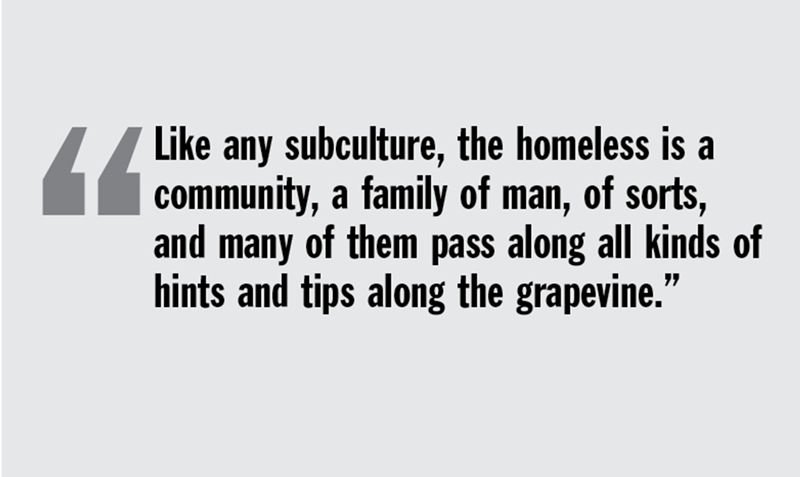Even Christopher Smitherman and Christopher Finney must roll over in the middle of the night in the strange bed they share and look at one another and wonder: How the hell’d this happen?
But I know — and even understand — what they’re doing.
It doesn’t make it any less icky and confusing.
These two outliers need one another to make their finagling of ballot issues, taxes, streetcar opposition and the pall of general government oversight make some kind of sense.
And they sometimes succeed at actually stopping progress and impeding change.
And since Smitherman may have previously frightened the white, conservative, anti-government, Tea Party fringe element Finney parlays and since Finney definitely cannot on his own finesse direct access to the black, disenfranchised, sometimes covert operatives and middle-class black stalwarts of groups like the local chapter of the NAACP, the two have traded Kool-Aid recipes, pinky swearing in a secret meeting in a part of town where no one knows who they are (say, Western Hills?) that they’ll each get the other camp to drink the stuff, its sediments thick with the indecipherable language of passed and failed ballot initiatives.
Only strangely, the Kool-Aid resembles black tea.
On Nov. 27, Smitherman held his NAACP presidency for a fourth, two-year term. This time against former union leader Robert Richardson, Sr., but only after the election was postponed from an earlier date after Richardson reported alleged pre-election improprieties against Smitherman to the national office and national officials monitored the election.
Oh yeah. And Smitherman reportedly won by 239 votes, though the national office would not release official election numbers. (Smitherman has been quoted saying 2,250 members were qualified to vote; national NAACP officials would only say 1,100 voted.)
Smitherman is said to have won with Finney’s help and that of a parade of “Tea Party types,” members minted perhaps at Finney’s behest to help keep Smitherman in office and therefore strengthen the Smitherman/Finney axis.
They somehow dreamed up this relationship in March 2009 when, during his second term, Smitherman appointed Finney as the NAACP’s chair of legal redress.
Two years ago Smitherman told me he did so to more closely align ballot issues affecting black neighborhoods (i.e. red-light cameras, county jail tax) to Finney’s anti-tax group COAST (Coalition Opposed to Additional Spending and Taxes). Smitherman said he was moving the NAACP beyond the realm of “identity politics” into “a more sophisticated arena of economics and politics.”
Sometimes this works.
In addition to stopping red-light cameras and a tax hike for the county jail, the pair put an issue on the ballot letting voters ratify the sale of Greater Cincinnati Water Works.
Sometimes it doesn’t.
They lost a run at instituting proportional City Council representation and Issue 9 (the anti-street car issue). And they wanted a ballot issue to allow voters to recall the mayor.
Ballot issues are all good. They strangle and re-shape the boundaries of politics for politics’ sake, because we can and we have a right to do so.
But there comes a time when a ballot issue for minutae is tedious. Sometimes, the relationships are more suspicious between the people drafting the ballot language and dreaming up the reasons for the ballot issues in the first place. In the case of Smitherman and the NAACP and Finney and COAST, there is something more jakey afoot than what they’ve been trying to convince us is an over-taxed governmental abuse of power since they’ve been in cahoots.
It’s as though each man has at his discretion the heft and name brand recognition of an acronymed group through which he funnels and airs his own political leanings and grievances and the rest of us are supposed to believe it’s all for the good of the people within his respective group.
I don’t much care what Finney does with COAST.
He is a conservative, white Hyde Park attorney who is aggressive enough to advance his agenda wherever he pleases.
And I’m all for dragging the century-old sleeping giant that is the NAACP into the 21st century and making it more politically progressive and less okey-dokey.
But, I do wonder if Smitherman — in all his political machinations and dreams of hardcore power plays — really knows what he is buying into with this alignment and how it will forever spill a permanent stain on the NAACP?
I wonder if he knows that groups like Finney’s and the other groups (not-so) secretly attaching themselves to groups like Finney’s only buddy up to groups like the NAACP for one reason: because they’re too lazy and too racially and culturally segregated to form non-political relationships with them.
And they need them Negroes.
If, in this post-election hangover, Republicans are still belly aching about how they dropped the ball in the inclusion game with blacks, Latinos and women, imagine what white, conservative, under-the-radar groups like COAST (who are its members, anyway?) and the Tea Party must be saying about their own homogeneous groupings.
They’re probably just talking about their agendas.
And if, as Finney once told me, Smitherman does what he does to sidestep preconceived notions of race and class as they relate to politics to form “common sense answers,” then Smitherman isn’t making any sense right now by having COAST and its ilk helping him win elections among NAACP constituents he’s been growing and leading since 2006.
Smitherman is back on council now as an independent after a swift, tumultuous term as a Charterite in 2003 after which he failed to win re-election. He’s been relatively serene this time around, undoubtedly learning the hard way how the game is played.
He may even be playing his position, amassing a voting block that’ll support him in his run-up to election as mayor, a race for which he’s yet to declare.
If he runs at least we will know who and what we’re getting.
But I’m not sure that office is big enough for two desks.
CONTACT KATHY Y. WILSON: [email protected]


